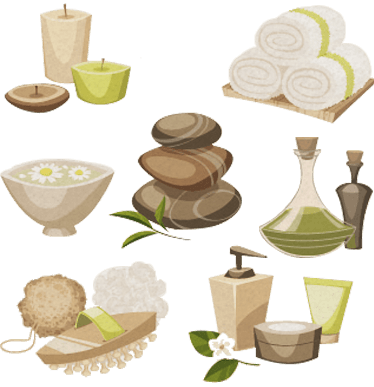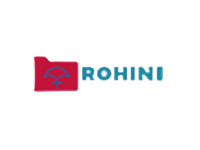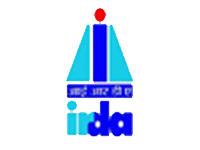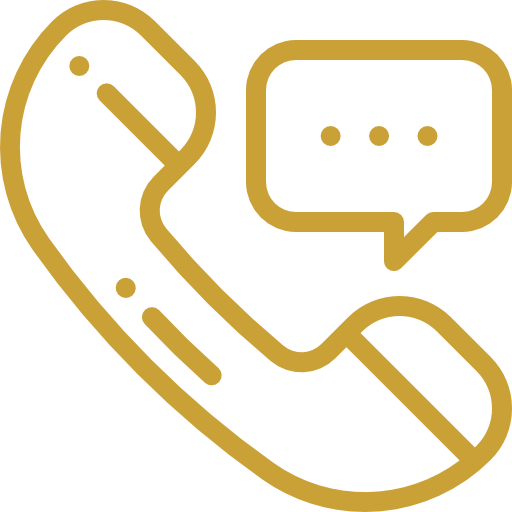Treatments
- Home
- /
- Ayurveda Treatments

Treatments
- A | C | D
- F | G | H | I | J
- K | L | M | O
- P | R | S | U
A
- Abhyanga is a procedure in which warm medicated oil is applied gently all over body in anulomagati.(Depth of penetration is about 3mm)
Indications:
- Helps in improving blood circulation of the whole body,
- Reduces stiffness and increases flexibility, It protects the system by removing all toxins from the body.
- It also helps in Neuro muscular disorder like paralysis, sciatica, trigeminal neuralgia, Cervical spondylosis , OA,RA, dry eczema, LBA.
Contraindications:
- Acute fever, Immediately after panchakarma , Diarrhoea, Vomitting.
- It is a para- surgical procedure where acute heat is transmitted in to the tissue to nullify the disease pathology.
Indications:
- Hemorrhoid’s, warts, sciatica, Achilles tendinitis, Chronic cervical spondylosis, Frozen shoulder, corns, Skin tag, chronic LBA, Calcaneal spur, plantar fascitis, all soft tissue inflammations.
Contra-indications:
- In summer season, eye disease, Children, weak person, old age, fearful
- Sudation given by bolus prepared of egg yolk and other herbal medicine. It is also known as Kukutanda pindasweda or Muttakizhi.
Indications:
- Muscle wasting, Paralysis, lock jaw, Sciatica, Bells palsy.
- Application of medicinal paste in the eye lid by using a special instrument called salaka.
Indications:
- Opacities of cornea and lens, growth in cornea, Epilepsy, watery eyes, computer vision syndrome, Refractive errors etc.
Contraindications:
- Indigestion, Fever, Head ache, after vamana or virechana, just after meals or head bath, fear, sadness, anger etc
Swedana done by applying warm paste of anna/shashtika rice
Indications:
- Motor neuron disease, degenerative disease, cerebral palsy, parkinsons, emaciation, paralysis, general debility, RA, Nourishing body.
Contraindications:
- Inflammatory conditions
Vasti is the procedure in which medicine is introduced through the anal route. Anuvasana literally means to remain inside the body for some time causing no adverse effects, it is given after food.
Dosage:Snehavasti- ¼ quantity of niruha-300ml
Anuvasanavasti- ½ quantity of sheha vasti-150 ml
Matra vasti-75ml
Contraindications:
Acute fever, Anemia, Diabetic, piles, rhinitis, Anorexia, Spleenomegaly, Filariasis, Sapsticity of thigh, Obstruction in throat, worm infestation.
Patient is made to sit in / lie in a tub containing medicated liquid to produce fomentation to the body
Indications:
- LBA, Sciatica, piles, anal fissure, ano-rectal fistula, urinary retention, Ibs, Arthritis etc
Contraindications:
- Burns, Poisoned, Alcoholic, Dehydrated/thirsty
- Insomnia, Vomiting, Bleeding disorders, Cardiac disorders
C
Sudation done by using bolus which is prepared by different medicated powders, tied into a potali using a specific cloth. This is then heated and a tapping fomentation is given.
Indications:
Acute phase of Rheumatoid Arthritis, poly myositis, demyelination, Disc prolapse, kapha dominant conditions in joints etc
Contraindications:
In pregnancy, and in weak persons.
D
Dhanyamla is a fermented medicinal preparation, dhara means pouring medicated liquid in a small continuous and a constant stream over the affected area.
Indications:
Retention of urine, Burning sensation, Diabetic neuropathy, Chronic fatigue, Spasticity, Cervical spondylosis etc
Administering sudation by pouring warm medicated oil/milk/decoction on diseased part or the whole body is called Dhara. While doing thailadhara it gives both snehana and swedana effect at a time.
Indications:
Joint pain, stiffness, traumatic pain, fracture management, improves complexion, Improves stability and stamina, Strengthen nerves, reduce burning sensation.
Dhumapana is a herbal smoking therapy,in which herbal preparations are burnt and the smoke emitted, is inhaled. It is usually done for vitiated kaphadosa in respiratory system and as a post therapy in Nasyam etc.
Age limit: 18 years to 80 years
Indications:
Cough ,Allergic rhinitis, head ache, ear problems, Nasal related problems, bad breath, teeth problems, excess sleep, Bronchial asthma, sinusitis, nasal polyp, and rhinitis.
Contraindications:
Hemorrhage, Person under virechana and vasti, Pregnancy, Alcoholic, Poison case, Insomnia, Diabetic, Children, Old age, Weak person, Anaemic.
It is a process of irrigating the vagina with specific decoctions; it is a type of uttaravasti.
Indications:
Vaginal discharge, Vaginal itching, Cervical erosion,HPV infection, White discharge, Cervicitis, Trichomaonas vaginalis infection.
G
Process of holding medicinal decoction or oil in buccal cavity for a certain period without movement is called Gandusha. It can be done by both healthy and diseased person. It is curative as well as promtoes strength of the gums and teeth.
Indications:
Mouth ulcer, tongue ulcer, tonsillitis, throat pain, laryngitis, ear disease, gum inflammation.
The process of retaining warm medicated oil inside a ring made from gram flour dough, in the cervical region of the spine for a period of time is called Griva Vasti. The temperature of the oil is maintained constant throughout the procedure.
Indications:
Cervical spondylosis, Spondylolysthesis, disc prolapse, ankylosing spondylitis, rheumatoid arthritis etc.
J
Sudation is given by ppreparing a bolus from Jambira fruit pieces processed with various other herbal powders and oils. This bolus is then tied up as a potali using cloth and heated and taped over the affected area to provide great relief.
Indications:
Frozen shoulder, Paralysis, OA, Plantar fascitis, traumatic conditions etc
The process of applying heat to knee region by retaining warm medicated thaila with in a specific formed frame. The oil is retained for a specified period of time and the temperature of the thailam is maintained constant through out the process.
Indications:
Knee pain, Osteo arthritis, Rheumatoid arthritis
Contraindications:
Inflammatory conditions
K
Warm medicated oil is retained in lumbar region in a specific formed frame for a specified period of time. Care is taken to maintain constant heat of the medicated oil.
Indications:
Sciatica, LBA, Lumbar spondylosis, Rheumatoid Arthritis, Sacroileitis, Disc prolapse, Ankylosing spondylosis
Contraindications:
One who cannot lie down in prone position
Pouring liquid from specific height to all over body for a stipulated period. Seka is done with kashayam or thaila.
Indications:
- Thailam- Neuro muscular disorder, rheumatological problems, fractures, dislocation of joints, peripheral neuropathy.
- Kashayam- For cleansing wounds, Disease related to eyes and vagina.
Contraindications:
Thaila- Painful inflammatory conditions, Acute stage of fever, Gastro intestinal problem, Respiratory disorder, Diarrhoea.
It is an Ayurvedic medicated caustic thread which is prepared by smearing ayurvedic drugs in a special linen thread. It is used as a method of cautery.
Indications:
- Fistula-in-ano, Pilonidal sinus, Haemorrhoids, Other growths etc
Contraindication:
- No definite contraindication, can be safely used in whom kshara is contraindicated (Children, old person, weak person, pregnancy, fever etc)
Guda-100gm, saindava-15gm, sneha- 100 to 150ml, Kalka (Satahwa)-15 to 20 gm, Gomutra-400ml, tamarind paste (100gm)
Indications:
Distension of Abdomen,Rheumatoid arthritis,Chronic constipation, worm infestation, Dysuria,Tumor etc
Makshika-100ml, Sneha-200ml, Kshira kashaya-200 to 240ml
Indications:
Gouty arthritis,Acute gastritis, peptic ulcer.
It improves strength,increase complexion, reduces vata.
L
Makshika-200ml, lavana-15gm, Sneha(MTT)-200ml,Kalka-30gm,Triphala kashaya-300ml,Dhanyamla/gomutra-200ml,Yavakshara-5 to 10gm
Indications:
Obesity,hyper lipidemia,atherosclerosis etc.
G
Process of holding medicinal decoction or oil in buccal cavity for a certain period without movement is called Gandusha. It can be done by both healthy and diseased person. It is curative as well as promtoes strength of the gums and teeth.
Indications:
Mouth ulcer, tongue ulcer, tonsillitis, throat pain, laryngitis, ear disease, gum inflammation.
The process of retaining warm medicated oil inside a ring made from gram flour dough, in the cervical region of the spine for a period of time is called Griva Vasti. The temperature of the oil is maintained constant throughout the procedure.
Indications:
Cervical spondylosis, Spondylolysthesis, disc prolapse, ankylosing spondylitis, rheumatoid arthritis etc.
J
Sudation is given by ppreparing a bolus from Jambira fruit pieces processed with various other herbal powders and oils. This bolus is then tied up as a potali using cloth and heated and taped over the affected area to provide great relief.
Indications:
Frozen shoulder, Paralysis, OA, Plantar fascitis, traumatic conditions etc
The process of applying heat to knee region by retaining warm medicated thaila with in a specific formed frame. The oil is retained for a specified period of time and the temperature of the thailam is maintained constant through out the process.
Indications:
Knee pain, Osteo arthritis, Rheumatoid arthritis
Contraindications:
Inflammatory conditions
M
Makshikam-200ml, Lavana-15gm, Sneha(murchitataila) -200-240ml,kalka(satahwa)-30gm,Kashaya(erandamula)- 450- 480ml
Indications:
Worm infestation,Skin disease,Piles,Diabetic,Belching, spleen disorder, tumor etc
Application of medicinal paste or lepam on the face, keeping it undisturbed for some time, followed by washing it off, is called mukhalepam.
Indications:
Blackish or bluish hyper pigmentation on face, Wrinkles, Acne vulgaris
Contraindications:
Immediately after Nasya, lock jaw, Anorexia.
N
Nasyam, is one among the Panchakarma techniques. Following the preparatory procedures of Mukhabhyangam and Nadisweda,medicated liquid in specified quantities is administered through nasal route.
Indications:
Ent disease, Psychiatric disease, Neck disorder, Facial palsy, Sinusitis, Nasal polyp, Hyper pigmentation in face, Hemiplegia, Frozen shoulder
Contraindications:
Indigestion, cough, asthma, menstrual periods, those who is under vamana and virechana or vasti
Application of medicines in the eyelid by using a special instrument called salaka, is called Netra Anjanam.
Indications:
There is a chance of accumulating Kapha in netrasrotas, to eliminate those kapha anjana is most effective (Kapha predominant conditions)
Contraindications:
Severe inflammatory conditions, fever, head ache, when eyes are tired, after vamana and virechana, just after head bath and meals
Medicine is instilled as drops in the open eyes from height of 2 Angulas
Indications:
Initial stage of eye disease, scleritis, conjunctivitis, eye strain etc
It is procedure wherein, a ring made from a dough is kept around the eye and then filled with warm liquids. The patient is then asked to blink their eyelids slowly.
Indications:
Macular degeneration, retinitis pigmentosa, eye strain and weakness, drooping of eye lids, dry eye, squint, Vata pitta predominant conditions.
Contraindications:
Too hot or cold season, person who are contraindicated for nasya, kapha related eye disease
Niruha literally means that whose action cannot be assessed or that which is capable of eliminating doshas and disease from the body
Contraindications:
- After intake of sneha, Weak person, decreased digestive power,soon after vomiting and purgation, immediately after nasya, Asthma, Cough, Diabetic, skin disease, distension of Abdomen.
- Dosage:Maximum dosage-12 prastha, Practically-700ml-1200 ml
P
Patra means leaves and potali means bundle. The medicinal leaves are processed with oils etc ingredients and made into a bundle tied using a cloth. This is then tapped over hte affected area to provide tapping kind of fomentation.
Indications:
RA, OA, Hemiplegia, Frozen shoulder, Myalgia, Neuralgia, lumbago, paresthesia Tendenitis, Muscle sprain, Bone degenerative disease
Makshika-200ml,lavana-15gm,sneha- 200ml,Kalka(Yashtimadhu)-30gm, kashaya-350ml
Indications:
Ulcerative colitis
Procedure of bandaging the paste of herbs on eyes is known as pindi
Warm pindika-For vatika eye disease
Cold pindika- For paittika eye disease
Indications:
Ulceration, surgical wounds, conjunctivitis
Prachana is one of the type of Raktamokshana in which surgical instrument is used to make prick in targeted areas
Indications:
Localised skin disease, Eczema, Pemphigoid, Alopecia, Localized vein thrombosis
Contraindications:
Too weak, anemia, pregnancy, bleeding disorder.
It is a modified procedure in which putapaka rasa is kept in eyes after tarpana kriya in certain conditions. After tarpana eyes may become dull and weak so to strengthen the eyes, putapaka is done
Indications:
Macular degeneration, retinitis pigmentosa, Eye strain and weakness, Drooping of eye lids, Dry eye, squint, Vata pitta predominant conditions.
Contraindications:
Too hot or cold season, who are contraindicated for Nasya, Kaphaja eye disease..
R
Makshika-120 to 200ml, lavana-10 to 15 gm, sneha-120 to 200ml, kalka(satahwa/ yastimadhu)-20 to 30 gm, Kashaya-400ml,mamsa rasa-100 to 120ml
Indications:
Infertility,Good for eyes,rejuvenative,aphrodisiac
S
SSPS is the Sudation method, done by the potali made up of njavara rice cooked in milk and balakwatha. It is also known as dhanyapindasweda.
Indications:
- It improves blood circulation, and prevents degeneration of muscles and bones.
- It also helps in cases of Muscular wasting, Hemiplegia, Paraplegia, MND, Poliomyelitis, LBA, Sciatica, Scoliosis, Kyphosis, Chronic arthritis.
Contraindications:
- Kapha increased conditions, children below 7 years, too weak person, Pregnancy, Acute fever, Diarhhoea, obesity, Oedema, Diabetes, Skin disease, Heart disease, Urinary related disease.
Shirodhara is a procedure in which medicated liquid is poured over the forehead in a steady stream and allowing it to flow over scalp from a specific height for a specified period of time.
Indications:
Headache, Insomnia, Head ache, Palsy, Allergic dermatitis, Psoriasis, Diabetic neuritis
Contraindications:
Glaucoma, Fever, Conjunctivitis, Inflammatory condition of head.
It is a unique treatment, wherein a cylindrical frame made from specialised material is kept over the head and is filled with medicated oil, which is allowed to stay over head for the prescribed time.
Indications:
Head ache, ENT disorder, Frozen shoulder, Neck stiffness etc.
Contraindications:
Fever, Sinusitis, fungal infection, acute inflammatory condition, Children below 7 years.
It is type of bloodletting by using srnga/funnel/vaccum apparatus for sucking blood.
Indications:
- localized tenderness, Frozen shoulder, hematoma, lowback ache, numbness, Varicose vein.
T
It is a procedure in which medicated buttermilk is poured in a countinuous stream over fore head/ other parts of body in a specific manner for a specified period of time.
Indications:
Diabetic, Insomnia, Menopausal symptoms, Depression, IBS, Hypertension, Dandruff, Increased iop, aneurism
Contraindications:
Weak person, Excess dryness, old patients, vata predominant condition
U
Massage done with medicated powder or paste with affordable pressure in retrogated direction is known as udwarthana.
Indications:
Obesity, Diabetic,Acute neuropathy, TAO, Motor neuropathies, Peripheral vascular disease
Contraindications:
Inflammation, cellulitis, wounds, Deep vein thrombosis, Children, senile person.
Upanaha means to tie/ bandaging. It is an ekangasweda. It is included under both agneya and Anagneyasweda. A hot paste of herbs and powders is applied over the targetted areas and bandaged. This is removed once cooled.
Indications:
Osteo arthritis, Tennis elbow, synovitis of knee joint, calcaneal spur , carpal tunnel syndrome
The procedure of pouring warm medicated thaila in a specific frame on the anterior chest regio is called as uro vasti.
Indications:
Injury in chest, Pain in heart, Cough due to vata, Chest pain, costochondritis
Administration of medicine through uttara margga. In females it can be done through either urinary or vaginal route, In males it is administered through urethral route.
Indications for female:
Infection in vagina, infertility, cervical erosion, cervical intra epithelial tumors, endometrosis, uterine prolapse, tubal block, dysuria, leucorrhoea.
Indications for male:
BPH, Male infertility, erectile dysfunction, Incontinence, Premature ejaculation, oligospermia
V
It is a specific type of Vasti prescribed in only specific conditions.This can be administered even after meal.
Indications:
Low back pain, Stifness in lower back, Rheumatoid arthritis, distension of abdomen.
Makshika-200ml, Lavana-15gm, Ghrta(Vastyamayantakaghrta)-200ml,Kalka(Yashtimadhu,pippali)-30gm, kashya-450 to 480ml
Indications:
Premature ejaculation, Oligospermia
Sudation given by heated pack of sand. It is a type of rukshasweda. It can be done to the whole body or a specific part. It relieves pain and inflammations.
Indications:
Rheumatoid Arthritis, Asthma, Fever due to kapha, Kapha related joint pain
Vamana is one among the Panchakarma procedures. Expulsion of aggravated doshas from the body through upper route-Mouth is known as vamana.
Indications:
Reflux esophagitis, Bronchial asthma, Psoriasis, Schizophrenia, Epilepsy, Depression, Psoriatic arthropathy, Poison case, Indigestion.
Contraindications:
Above 60 years, Pregnant, Lactating women before 8 months, Mensturationtime, Hypertension, Cardiac patients, Hypoglycaemic, Peptic ulcer, Children, Piles, etc
Medicines made in to paste (lepam) and applied over the closed eye lids sparing the eye lashes.
Matra- 1/4thangula (approx. 5mm thick)
Indications:
Eye swelling, Eye pain, Burning sensation, redness and glaucoma related conditions
It is one among the Panchakarma procedures. It is a procedure in which aggravated doshas are expelled through adhomarga(rectal route) by intake of oral medicine.
Indications:
Gastrointestinal disease, Genito-Urinary, Hepato-biliary, Dermatological problem, Metabolic, Auto immune and chronic infective disease, Bleeding disorder, Respiratory disease, Ophthalmic disease etc
Contraindications:
Diarrhoea, Muscular dystrophy, Haematuria, Fever.
Makshika-100to150ml, Ghrta-100 to 200ml, Kalka (Pippali)-50 to 60gm, Kashaya-500 to 700ml
Indications:
Aphrodisiac
Our Association
















